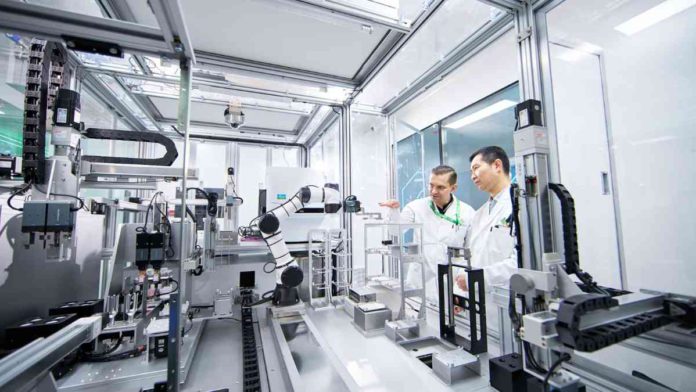Insilico Medicine, the Hong Kong-based biotech startup backed by private equity giant Warburg Pincus and Chinese conglomerate Fosun Group, has begun human trials of its AI-designed drug.
Known as INS018-055, the fully generative AI drug is targeted to treat idiopathic pulmonary fibrosis (IPF), a chronic disease that causes scarring in the lungs. The condition is prevalent in about 100,000 people in the United States and, if left untreated, can lead to death in two to five years, according to the National Institutes of Health.
Currently, the treatments for IPF are pirfenidone and nintedanib, which may provide some relief or slow down the symptoms but don’t stop progression or reverse the damage. Some unpleasant side effects of these drugs include diarrhea, nausea, loss of appetite, and weight loss.
Read More: Harvard University Employs AI Chatbot as CS Instructor
“There are very few options for people with this terrible condition, and the prognosis is poor,” said Insilico Medicine’s CEO Alex Zhavoronkov. Initial studies indicate that INS018_055 has the potential to address some of the limitations of existing therapies.
The drug received positive topline data in Phase I in early 2023, with international multi-site Phase I studies demonstrating consistent results, indicating favorable tolerability and safety of the AI-generated INS018_055. Shown to be generally safe and well tolerated by healthy volunteers involved in the study, the supportive data led to the initiation of the Phase II study.
A 12-week trial will include subjects diagnosed with IPF, and the Phase II study will assess the tolerability, safety, preliminary efficacy, and pharmacokinetics of the drug. Insilico also has plans to expand the testing population by recruiting 60 subjects with IPF at about 40 sites in China and the U.S.
Insilico’s chief medical officer, Sujata Rao, M.D., stated, “If our Phase IIa study is successful, the drug will then go to Phase IIb with a larger cohort of participants.” If there is a significant response to the drug, then it will be evaluated on hundreds of patients to confirm its safety and effectiveness before it can be a new FDA-approved treatment for patients with that condition.


